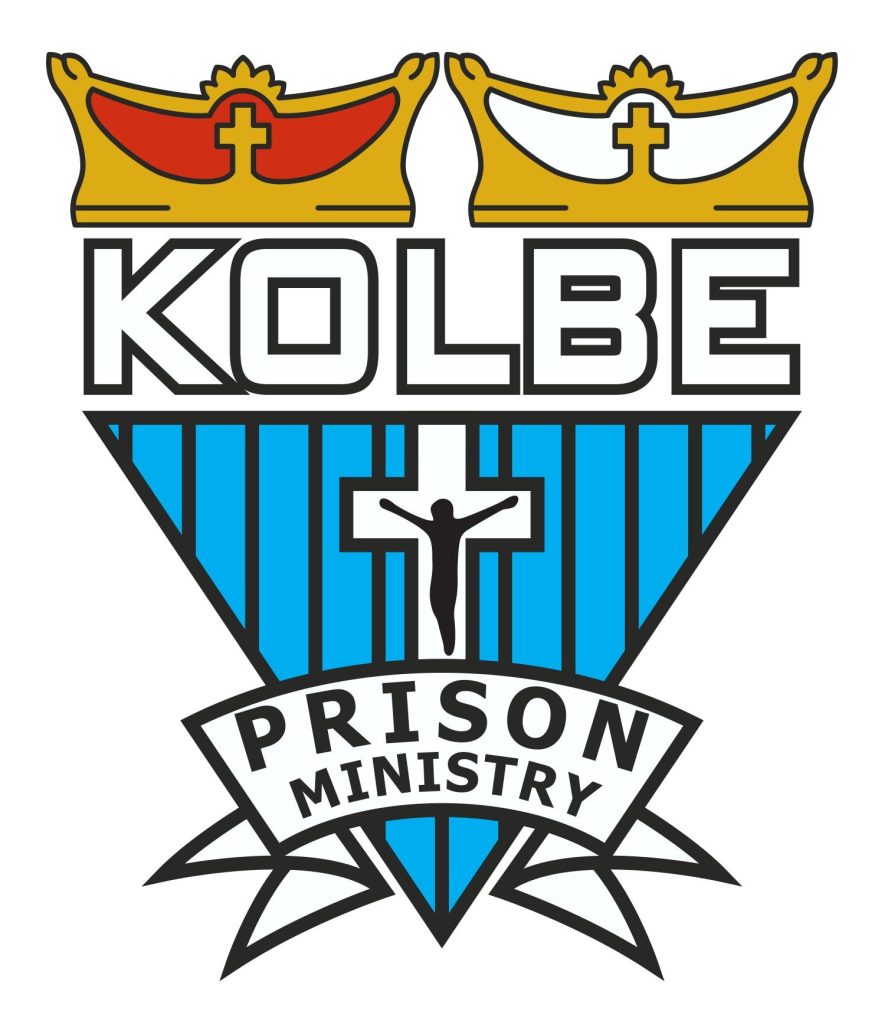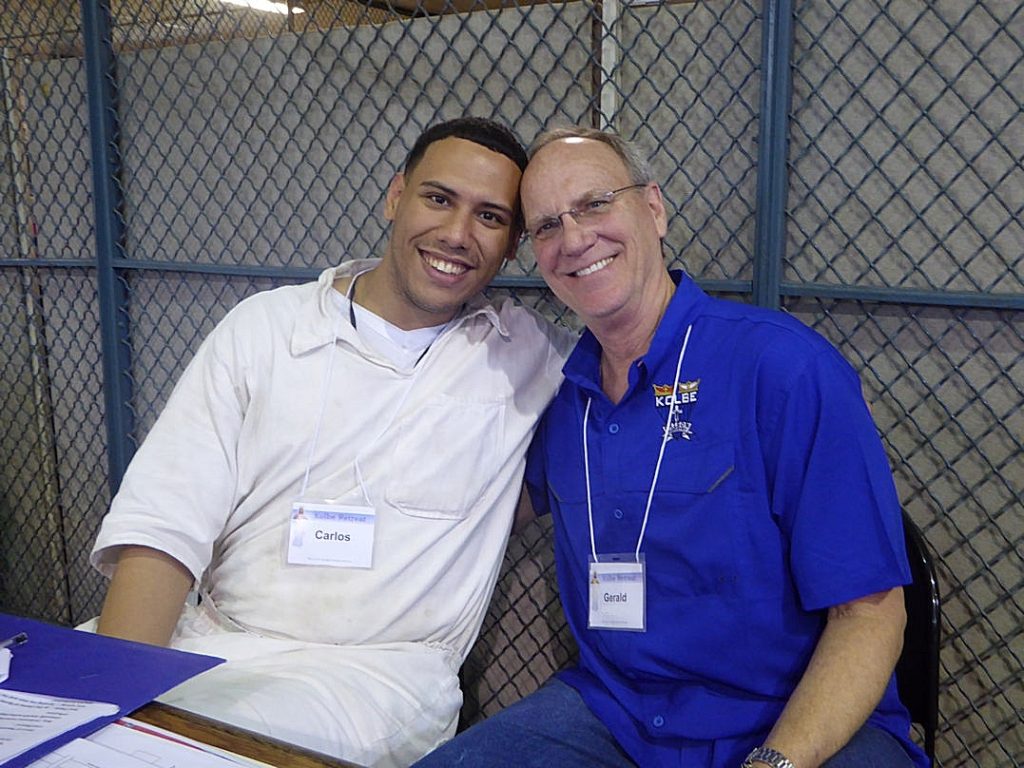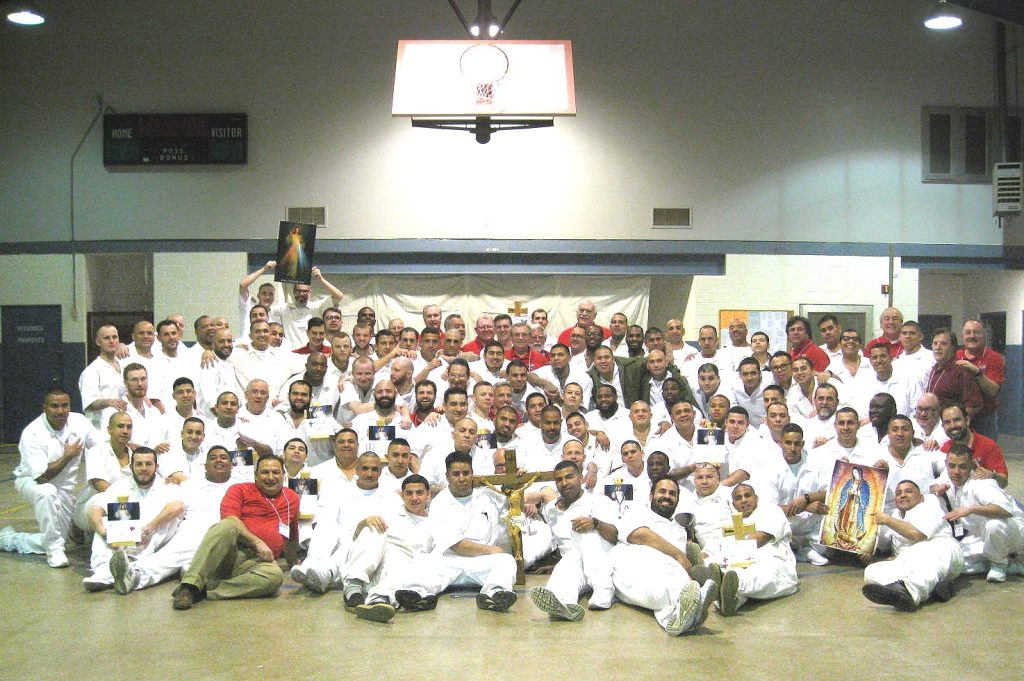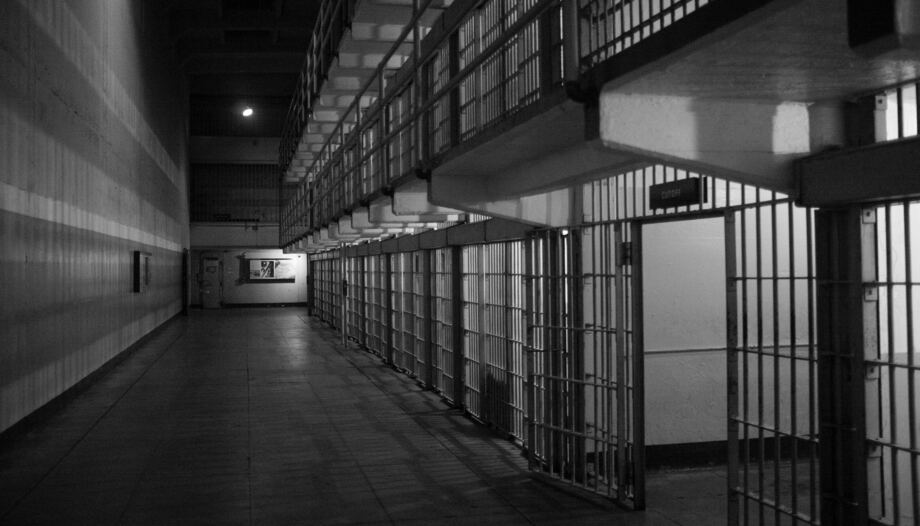In the United States, there is a pastoral work called ".Kolbe Prison Ministries". It consists of a group of people who visit prisons, organize retreats for prisoners, facilitate access to the sacraments and give catechesis.


The volunteers of this pastoral ministry say that the place where they have found the Holy Spirit most present and palpable is in prison, ministering to prisoners. They say they witness reconciliations that seemed impossible and deep conversions.
To raise awareness of Kolbe Prison Ministries, members of the group gave an interview to Omnes. In it they explain their ministry, what inspired them to start it and their current needs.
Why was Kolbe Prison Ministries (KPM) born?
- A group of faithful Catholic men from the Texas Hill Country, who had been involved for years in other Christian-based prison ministries as well as Catholic ACTS retreats in the free world, realized the spiritual benefit of holding ACTS-type retreats in prisons.
The impetus to get involved in prison ministry in the first place was based primarily on Jesus' call in Matthew 25, 36 and 40, where he said, "I was in prison, and you visited me" and "...I tell you the truth, whatever you did for one of the least of these brothers of mine, you did for me." We take Jesus at his word and act accordingly.
In addition, the teachings and practices of the Catholic Church are often misinterpreted or demeaned in prison, even by prison staff. This can leave some Catholic offenders confused and disoriented. So, to counteract negative information and actions, it was deemed necessary to bring "Catholic" ministry into prisons. This is expressed in KPM's mission statement which is "to share the agape love of Jesus Christ with the incarcerated and to teach the fullness of the truth of the Catholic Church to the incarcerated."
Why was the prison ministry baptized with the name of St. Maximilian Kolbe?
- Originally introduced in 2009 as "Prison ACTS," the founders realized that some aspects of ACTS retreats were not compatible with prison regulations, so in 2015 a separate non-profit organization, Kolbe Prison Ministries, was legally incorporated. Because the organization's founders believe strongly in Catholic teachings, including the communion of saints and their special intercessions for us on earth, St. Maximilian Kolbe to name the organization.
Maximilian Kolbe, a Polish priest, was arrested in 1941 and sent to the Auschwitz concentration camp. There he continued to work as a priest and to offer comfort to his fellow inmates in horrible circumstances. When Nazi guards selected 10 people to starve to death as punishment, Father Kolbe volunteered to die in place of a stranger who had a family. He was later canonized as a martyr and is now known as the patron saint of prisoners.
What do KPM volunteers typically do in prisons?


- KPM volunteers lead 3-day retreats that include fellowship, prayer (including the Holy Rosary and Chaplet of Divine Mercy), adoration of the Blessed Sacrament, inspirational talks and testimonies (some of which are from inmates), sacrament of reconciliation, Mass, good food, Christian music and special ministry activities (which cannot be disclosed).
To further fan the spiritual flame that is often kindled in inmates during retreats, KPM volunteers provide ongoing faith formation, such as retreat meetings, Mass and/or communion services, RCIA classes, Bible study, and other educational and faith-building activities. Regular volunteers are required to receive periodic training through the corrections department to ensure that they understand and will comply with the rules of the institution.
What do inmates crave most in the spiritual realm?
- Virtually all of the inmates served by KPM have had negative experiences. They have been raised in broken homes, had absent or abusive parents, suffered early childhood trauma, violence and poverty. Many have lacked good role models or mentors and have tried to escape the pain of their plight through drugs or alcohol. Others have sought protection and belonging through family alternatives (such as gangs). Most have become disillusioned with school and dropped out, and have fallen down the slippery slope to criminal activity and incarceration.
Inmates are often deeply wounded, distrustful, wary, angry, frightened, disheartened, display false bravado and view their lives with little hope. But, fortunately, a good number of them are sincerely seeking forgiveness, redemption and a second chance.
Many of the inmates who attend a KPM retreat seek to change their behavior and develop or deepen their faith life. They recognize the error of their past and want a better future with God at the center. On the other hand, perhaps as many participants are attracted to the "perks" they perceive: the opportunity to enjoy a break from their monotonous routines, eat better than in prison, enjoy lively music, and spend time with their inmate friends. However, almost all inmates who attend KPM retreats for the perks are spiritually moved to improve themselves, their relationship with others and their relationship with God.
Most of the inmates who attend the retreats respond well to the love and sincere concern expressed by KPM volunteers. They never seem to tire of the attention, camaraderie, "fatherly" (or "motherly") type affection, friendly banter, deep discussions and spiritual bonding. Recidivism rates in the prison systems where these retreats and associated ongoing catechesis take place have improved dramatically.
They try to help prisoners find Jesus, but do KPM members find Christ in prison? If so, how?
- Prisons are the devil's playground and a very dark place. There is much evil loose within. However, where there is darkness, there is also the overwhelming and merciful light of Christ. In my personal experience, I have never found the Holy Spirit more present and palpable than when I am in prison ministering to prisoners. The atmosphere seems almost electric. It seems counterintuitive, but many other volunteers have expressed the same sentiments. Virtually every volunteer honestly says that they feel they have gotten more out of the retreats and other KPM ministries than either the retreatants or the inmates.
Often, the volunteers are humbled by the deep and expressive faith of some of the inmates. Thus, these faith-filled inmates minister to the volunteers. There are few, if any, volunteers who have not witnessed truly amazing miracles... Unexpected acts of forgiveness, spiritual conversions, renunciation of Satan, ending gang affiliations, rejection of racial bigotry, random acts of kindness, returning home to church and much more.
It is the call of Jesus, the presence of the Holy Spirit, the experience of miracles and the injection into their own life of faith that keeps the volunteers coming back for more.
Visiting prison can be tough, what kind of people can volunteer? What do they need to know before joining the ministry?
- KPM volunteers must be adults (over 18 years of age), male or female, preferably active Catholics or at least non-Catholic Christians who have not abandoned the Catholic faith. It is recommended that the volunteer be reasonably mobile (although wheelchairs may be available at the prison) and not in frail health (as it may not be possible to leave the prison quickly in the event of a medical emergency). Other than that, volunteers must be willing to abide by the code of conduct of the prison department and KPM, obey the requirements and instructions of prison staff, and have a servant's heart.
The correctional department may require prior training or a special untrained volunteer designation (occasional or temporary volunteer). The partner Catholic diocese may also require some training and "safe environment" certification.
Although there is an image that prisons are dangerous places only for the brave or reckless, most of the time the opposite is true. Fences and gates separate volunteers from direct contact with the general inmate population. Inmates who are allowed to attend KPM retreats or ongoing ministries have a record of good behavior for a sufficiently long period of time. Retreat and ministry participants are also personally selected or specifically approved by the prison chaplain and warden.
In the history of KPM, no volunteer has ever suffered direct hostile action, personal assault or notable injury. At my first retreat, the inmates at my small group table asked me if I was afraid to go into the prison. I responded by saying that I could hardly sleep the night before because I was so excited to volunteer at the retreat working with these inmates. I can honestly say that I have always felt that it is safer for me to be inside the prison walls than to be on the road driving to the prison.
Where can those who want to participate find information?
KPM has some information (including a Frequently Asked Questions document) available to volunteers. It explains what they should know, wear, do and not do while ministering in prison. More helpful information can be found on the KPM website (kolbeprisonministries.org). Prior to KPM retreats, all team volunteers attend meetings to establish spiritual and personal bonds, discuss retreat events and schedule, assign roles, answer questions, and generally prepare all team volunteers for their participation in the retreat.
If they still have questions or concerns, volunteers can contact KPM management through the contact form on the website.
How can you help KPM?
- There are several ways to support and be a part of this life-changing ministry, including (i) prayer, (ii) financial or in-kind donations, (iii) becoming a volunteer, or (iv) recommending the ministry (telling others about KPM). Of course, all of these ways are wonderful but, at the present time, financial donations are especially desirable.
We are at the beginning of a new phase of tremendous growth with further expansion outside of Texas. A first retreat in the State of Florida is scheduled for August 2023 with more initial retreats expected in the States of Oklahoma, Kansas. Possibly there will be others next year. With the expansion, KPM's limited financial resources will be stretched. So financial donations are greatly needed and appreciated. Individuals, groups, churches and other organizations can donate online through the KPM website or by mail. Donors wishing to make in-kind donations should contact KPM so that need, applicability and logistics can be discussed.















